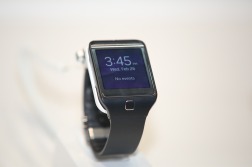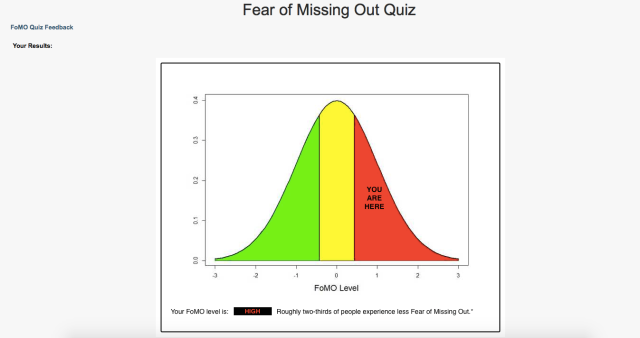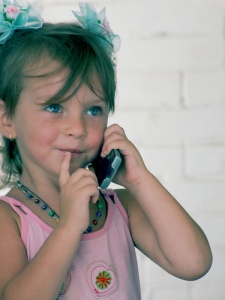This past week our second debate focused on how technology affects our health. Does technology have a negative impact on our health? Are there ways that technology is helping us in our quest to be healthier? How does technology affect our mental and emotional health? There were a lot of questions that were asked and a lot of information that was shared. Both groups did a great job presenting their arguments and I’d like to offer my perspective on the issue. You’ll notice that some of my ideas echo others in our class.
I’ll start with some of the arguments that I believe more strongly about. I completely agree that we all spend too much time behind screens or with a device in our hand. This isn’t a problem that is only affecting our youth. Many adults are now spending more time on their phones/devices than they are sleeping. If you compare the effects of sleepiness to the effects of a good nights sleep it is easy to see the importance of getting a good night sleep. Youth are also being affected by the lack of sleep caused by using technology, gaming, social media and text messaging. Sleep deprivation can lead to a significant number of health concerns for children and it can also impact their grades in school. Here is a great video that explains how our screen time impacts the amount of sleep we are getting.
I strongly believe that we should be doing our best to prevent our kids (and ourselves) from using devices or watching tv before bed. I know that it seems way easier said than done especially if you are like me and have excuse after excuse for why you need to have your phone in your room…”What if there’s an emergency and someone needs to get ahold of me??”…probably my silliest excuse because my phone is always on silent in the evening anyways. “How will I know what time it is?” Here’s an idea…buy an alarm clock. “I like to watch Netflix before bed”, I don’t have a solution for this other than to get your Netflix fix at some other point in time. Craig Canapari suggests ways that we can help prevent sleep problems caused by using technology. There are a lot of great suggestions but I think the important thing is to lead by example and start young. We need to set the expectations when our children are younger so that it creates a foundation for when they are in their teen years. I like to think that I’ll be able to prevent my kids from having their phones in their rooms at night, but I don’t know how that will go over when the time comes. I hope we can have an agreement in place so that they can get a good night sleep.
 Childhood obesity is on the rise and I don’t know if we can blame technology completely, but I do believe that it is definitely contributing to it. It is pretty obvious to see that sitting in front of a screen requires little physical activity. This limited activity isn’t only contributing to the obesity levels, but a variety of other physical health issues. Sure there are devices, systems, and apps that might encourage users to be physically active but we have to ask if these provide us with the same benefits of not using them? The devices and apps probably do a better job of encouraging us to workout or eat healthier, but the game systems like the Wii Fit don’t do the trick. Come to think of it, I don’t think the Wii is that popular anymore. I think it came in hot and then died out because if someone wants to play a video game, they want to sit
Childhood obesity is on the rise and I don’t know if we can blame technology completely, but I do believe that it is definitely contributing to it. It is pretty obvious to see that sitting in front of a screen requires little physical activity. This limited activity isn’t only contributing to the obesity levels, but a variety of other physical health issues. Sure there are devices, systems, and apps that might encourage users to be physically active but we have to ask if these provide us with the same benefits of not using them? The devices and apps probably do a better job of encouraging us to workout or eat healthier, but the game systems like the Wii Fit don’t do the trick. Come to think of it, I don’t think the Wii is that popular anymore. I think it came in hot and then died out because if someone wants to play a video game, they want to sit  and play. They don’t want to have to move or work to play the game. I also think that running on the spot or bowling using a remote doesn’t provide you with the same experience. You are missing out on the environment that we experience those activities in. Holding the weight of the ball, or running outside stimulates different muscles and I would argue requires much more work. Apps like Map My Run and My Fitness Pal are great for monitoring progress, tracking and setting goals as are devices like FitBit or Apple Watch. However we have to wonder if the devices are making us healthier, or is it our choice to use them that is making us healthier? One study found that exercise levels typically increase for the first few months before returning to the former level when the novelty wears off.
and play. They don’t want to have to move or work to play the game. I also think that running on the spot or bowling using a remote doesn’t provide you with the same experience. You are missing out on the environment that we experience those activities in. Holding the weight of the ball, or running outside stimulates different muscles and I would argue requires much more work. Apps like Map My Run and My Fitness Pal are great for monitoring progress, tracking and setting goals as are devices like FitBit or Apple Watch. However we have to wonder if the devices are making us healthier, or is it our choice to use them that is making us healthier? One study found that exercise levels typically increase for the first few months before returning to the former level when the novelty wears off.
 On the plus side, I do think that technology has definitely helped us when it comes to improving modern medicine. It is incredible to think about the different ways that technology works to help diagnose, monitor and prevent different medical issues. Technology has come a long way and is continuing to make a difference by transforming health care. Fellow classmate Bob knows first hand how wearable devices can help record and track important information to monitor a health condition. It is important to remember the role that technology has in our health care system and keep that in mind when we question whether or not technology is making us unhealthy or not.
On the plus side, I do think that technology has definitely helped us when it comes to improving modern medicine. It is incredible to think about the different ways that technology works to help diagnose, monitor and prevent different medical issues. Technology has come a long way and is continuing to make a difference by transforming health care. Fellow classmate Bob knows first hand how wearable devices can help record and track important information to monitor a health condition. It is important to remember the role that technology has in our health care system and keep that in mind when we question whether or not technology is making us unhealthy or not.
My final thoughts stem from reading Erin’s latest blog. I definitely think that our health is highly dependent on the choices we make. This relates to more than just technology and our health. If we make poor choices when it comes to eating and exercising, chances are we will be unhealthy. When we use fitness devices or apps to track our activity, it’s not the device that is making us healthy, it is our choice to be healthy. The device certainly helps keep us motivated and accountable but we still need to make the choice to get up and go, or eat healthy in order for the device to do it’s work. We cannot simply download an app and expect it to make us healthy. We need to make that choice. We need to help our kids make healthy choices and I think the best way we can do that is to model healthy habits. If our kids see us on our phone or computer all the time, what do you think they will think is healthy? If we put our devices down and encourage our kids to do the same, we are modelling that positive behaviour that should result in healthy habits. Taking our kids to the park and sitting on our phones is not setting a good example. Take a few pictures sure, but we don’t need to constantly be snapping or recording everything that they do. Play with your kids. Eat healthy. Exercise. Limit your own screen time especially in the evening. Set a positive example for your kids and it’s more likely that they will follow in your footsteps. Just like so many other things in life, it’s all about balance and moderation.
What do you think about technology and our health? How does it help us? Is it making us more healthy or unhealthy? Have you ever used an app or device to help you with your fitness goals? Did it work? I had one, and I was one of those people who didn’t last more than six months with mine 😦 But I realized I didn’t need an expensive device to help me stay active. It was all up to me. I had to make the choice to eat healthier and exercise, the device wasn’t doing it for me.



